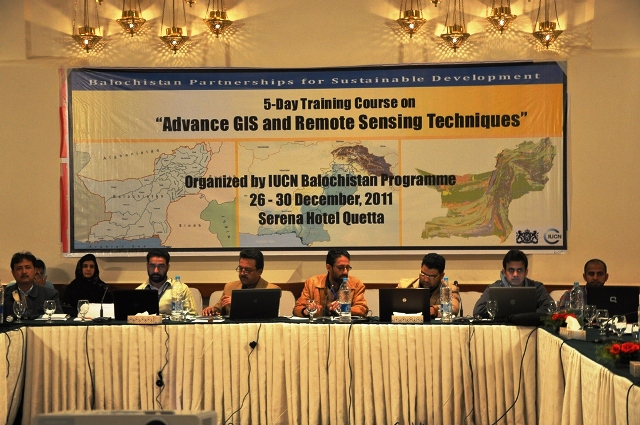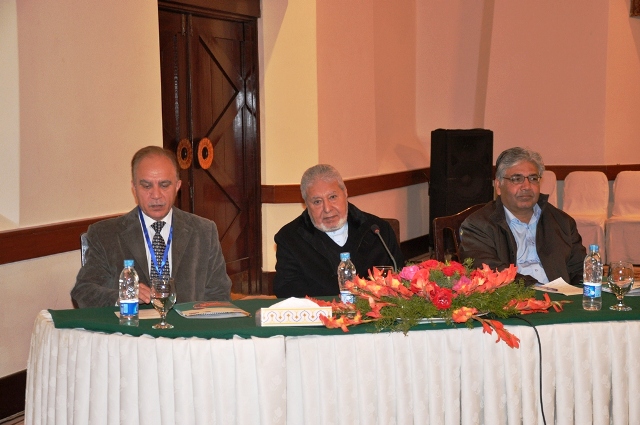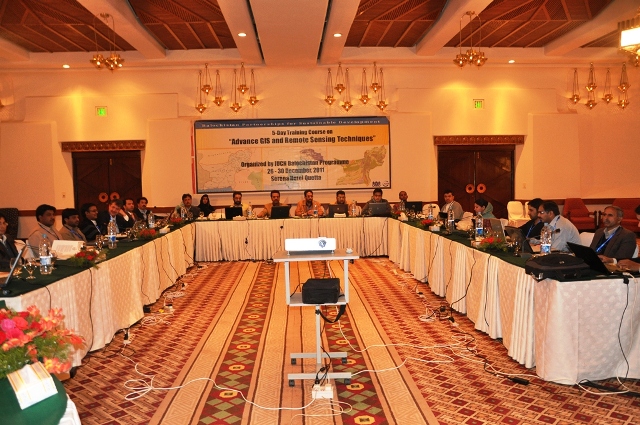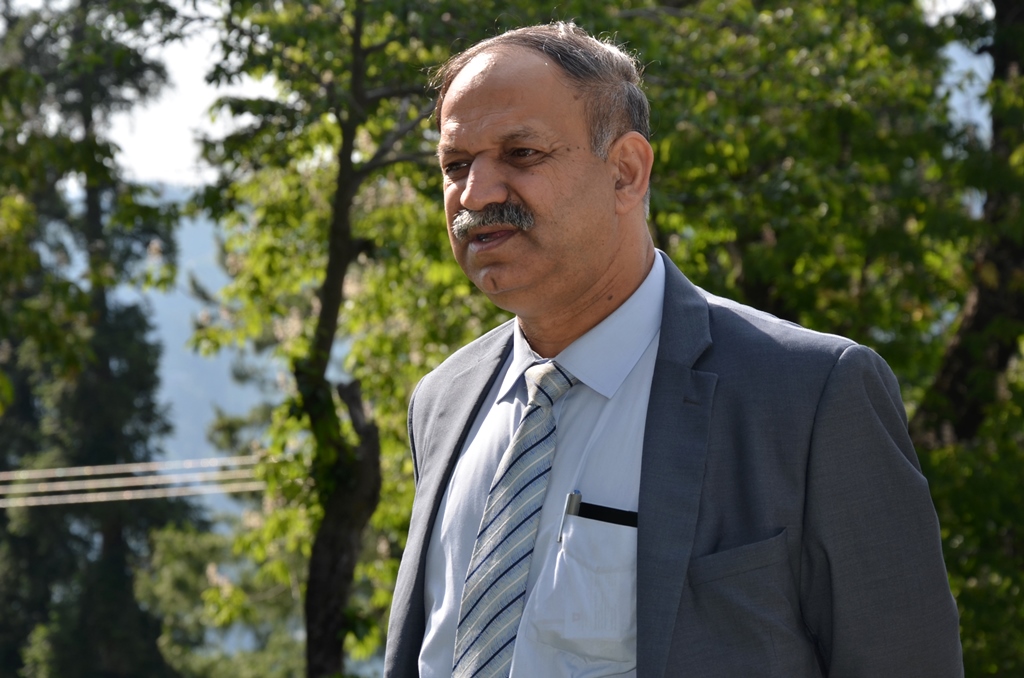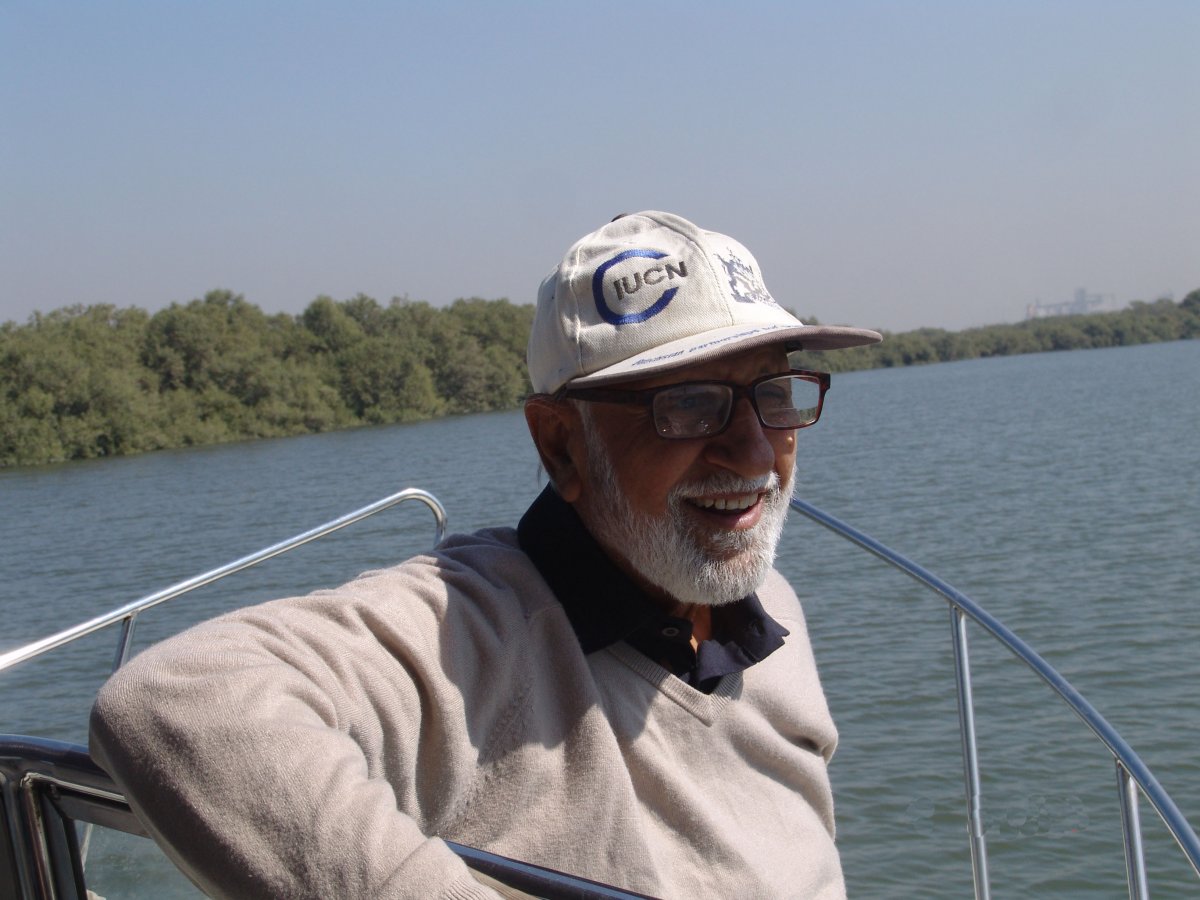Five- Days Advance Training workshop on Geographic Information System (GIS)
IUCN Pakistan under its Balochistan programme has begun a five day training workshop on advance GIS techniques. This workshop will run from 26th -30 December 2011 at the Quetta, Serena Hotel. The workshop was inaugurated by Mr. Ghulam Muhiuddin Marri, Member, Planning Commission, Government of Pakistan, who was also the chief guest at the event.
Mr. Zabardast Khan Bangash, Manager, IUCN’s Balochistan Program, while explaining the aims and objectives of the training informed the participants that this workshop was another addition in the series of training workshops on GIS and remote sensing held this year. These workshops have been widely successfully and have seen participation from individuals as well as stakeholders from different public and private institutions. The advance-training workshop was specifically organized for those who’d advanced from the basic training course. The participants were selected on the basis of merit with preference given to those who have worked in the field of remote sensing or GIS.
He emphasized on public-private partnerships and reiterated IUCN’s commitment towards collaboration for environmental upliftment. He suggested that there should be a review and appraisal meeting quarterly to exchange and share information in order to overcome problems and disparities. He highlighted that this training would prove to be useful in collecting environmental data and better managing the natural resources. He hoped that the participants would gain maximum benefit out of this opportunity
Mr. Zabardast Khan Bangash praised the efforts of chief guest Mr. Ghulam Muhiuddin Marri and Dr. Pervaiz Amir, Advisor Climate Change, for their contribution in planning and developing infrastructure in Balochistan.
Mr. G. M Marri appreciated the efforts of IUCN for human resources development and institutional strengthening in Balochistan. IUCN began its work in Balochistan in 1992 when it technically facilitated Balochistan Government in drafting and formulating the Balochistan Conservation Strategy. He explained that human resource development is a crucial feature for the development of a country and progress becomes very difficult without its aid.
He further complimented IUCN, currently working in more than 160 countries while implementing more than 1200 programs worldwide, for its contribution towards the development of Balochistan province and Pakistan as a whole.
For more information or to set up interviews, please contact:
Zabardast Khan Bangash, Manager IUCN Balochistan Programme,
IUCN (International Union for Conservation of Nature)
Quetta Phone: +92 8128240450-2, Fax: +92 812820706
Email: zabardast.bangash@iucn.org
About IUCN
The world’s oldest and largest global environment network, IUCN, International Union for Conservation of Nature, envisions a just world that values and conserves nature. IUCN helps the world find pragmatic solutions to our most pressing environment and developmental challenges. It supports scientific research, manages field projects all over the world and brings governments, non-government organizations, United Nations agencies, companies and local communities together to develop and implement policy, laws and best practice. The Union’s headquarters are located in Gland, Switzerland.
IUCN Pakistan is part of the IUCN’s Asia Regional Programme based in Bangkok, Thailand. Established in 1985 to assist in the preparation of Pakistan’s National Conservation Strategy, IUCN Pakistan has grown to become the largest country programme of IUCN. Together with its partners and members, it is implementing several conservation initiatives across the country through institutional strengthening, policy advocacy and field work. Currently there are 27 active members of IUCN in Pakistan, including the Government of Pakistan as the state member, six government agencies and 20 NGOs. Over 100 volunteers from Pakistan work in IUCN’s six specialised commissions.
